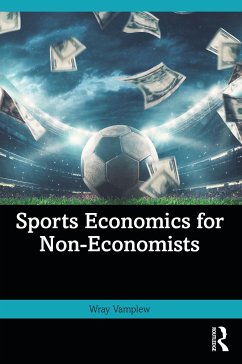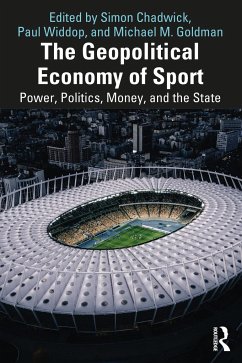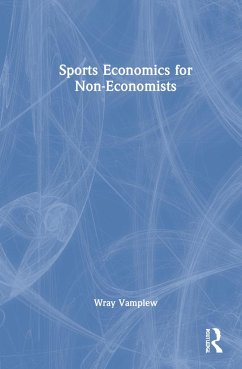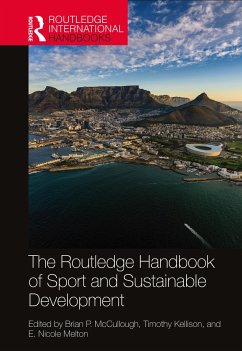
The Business of the FIFA World Cup
Versandkostenfrei!
Versandfertig in 6-10 Tagen
43,99 €
inkl. MwSt.

PAYBACK Punkte
22 °P sammeln!
The FIFA World Cup is arguably the biggest sporting event on earth. This book is the first to focus on the business and management of the World Cup, taking the reader from the initial stages of bidding and hosting decisions, through planning and organisation, to the eventual legacies of the competition.The book introduces the global context in which the World Cup takes place, surveying the history and evolution of the tournament and the geopolitical background against which bidding and hosting decisions take place. It examines all the key issues and debates which surround the tournament, from ...
The FIFA World Cup is arguably the biggest sporting event on earth. This book is the first to focus on the business and management of the World Cup, taking the reader from the initial stages of bidding and hosting decisions, through planning and organisation, to the eventual legacies of the competition.
The book introduces the global context in which the World Cup takes place, surveying the history and evolution of the tournament and the geopolitical background against which bidding and hosting decisions take place. It examines all the key issues and debates which surround the tournament, from governance and corruption to security and the media, and looks closely at the technical processes that create the event, from planning and finance to marketing and fan engagement. Analysis of the Women's World Cup is also embedded in every chapter, and the book also considers the significance of World Cup tournaments at age-group level.
No sport business or management course is complete without some discussion of the FIFA World Cup, so this book is essential reading for any student, researcher or sport business professional looking to fully understand global sport business today.
The book introduces the global context in which the World Cup takes place, surveying the history and evolution of the tournament and the geopolitical background against which bidding and hosting decisions take place. It examines all the key issues and debates which surround the tournament, from governance and corruption to security and the media, and looks closely at the technical processes that create the event, from planning and finance to marketing and fan engagement. Analysis of the Women's World Cup is also embedded in every chapter, and the book also considers the significance of World Cup tournaments at age-group level.
No sport business or management course is complete without some discussion of the FIFA World Cup, so this book is essential reading for any student, researcher or sport business professional looking to fully understand global sport business today.














